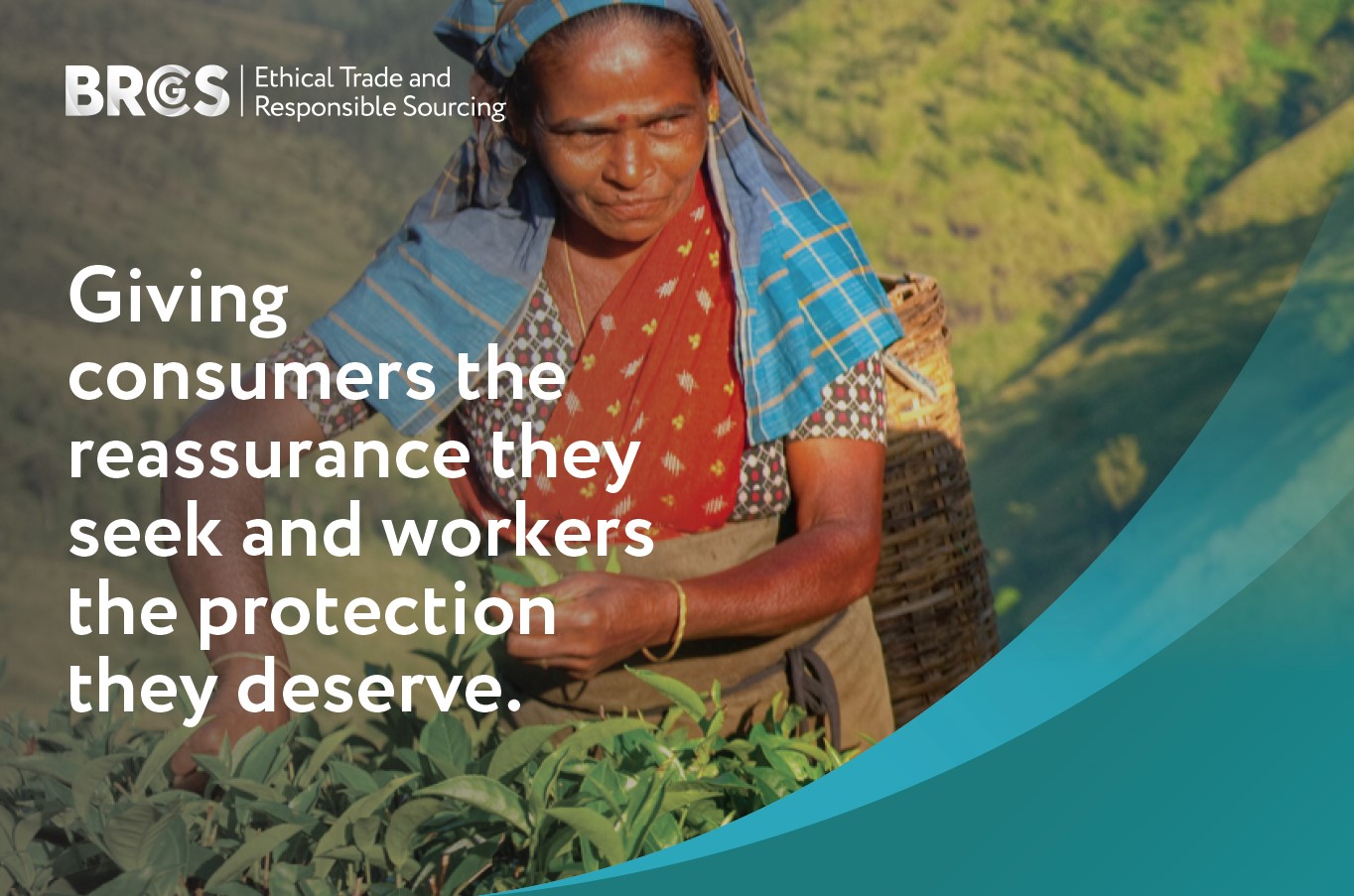Today’s conscious consumers are transforming their relationship with global brands. They are increasingly making more informed, ethical buying choices and although we saw signs of a consumer shift before the pandemic, recent reports indicate that the disruption caused has fuelled this behaviour. Now, 88% of consumers would like brands to help them to be more environmentally friendly and ethical in their daily lives (Futerra 2018 – UK/USA).
In tandem, there has been an emergence of regulation that places accountability onto businesses to ensure that workers’ rights and ethical performance is managed in their operations and supply chains. BRCGS has responded to these changes with the launch of its Global Standard for Ethical Trade and Responsible Sourcing (ETRS) which helps businesses to respond to these regulatory requirements, as well as the shifts in consumer, specifier and investor expectations.
The evolution of global supply chains has been a defining feature of economic activity in the last thirty years, enabling consumers to constantly access an ever-increasing range of products. Retail buyers and end-consumers now require assurance that products are safe, legal and of high quality. Consumers are also becoming increasingly concerned about the provenance of their purchases and many do not want to be inadvertently buying into systems of human exploitation and environmental destruction. The result is that businesses are now striving to ensure sustainable retailing and ethical practices throughout their supply network. One such company that has chosen to be at the forefront of this initiative in Romania is Ahold Delhaize, one of the world’s largest food retail groups in supermarkets and e-commerce, commenting “our customers expect us to pay attention to labour conditions under which the products they buy with us are produced. We source our products from many countries where labour conditions can be compromised”.
Standards and certification schemes play a crucial role in providing such assurance. The ETRS Standard is a full social compliance standard, which means it can be delivered as a standalone audit, or it can be audited alongside any of the other BRCGS Global Standards. Ahold Delhaize consider the standard to provide “a solid base to address, with our suppliers, major issues that are identified during the audit” and further commented that “At production locations for which BRCGS Food Safety certification is in place, the ETRS audit is a logical choice. It can create synergy in a way that sound labour conditions contribute to the production of safe food. I am very enthusiastic about the way in which the ETRS standard connects with the production location and builds up the required information. Both from the auditor and the supplier side, this lays a strong foundation”.
Ahold Delhaize are not alone as investment decisions based on ethical and social governance are increasingly playing a critical role in long-term investment strategies with shareholders demanding value-based investment options. Ernst and Young report the tangible and growing impact poor governance practices, such as poor worker rights practices, have on investment decisions. It was found that 56% of UK investors have increased their stake in ethical funds in the past five years and 63% of investment decisions are ruled out due to poor governance. This has resulted in a staggering total of $30.7 trillion invested in sustainable businesses, a 34% increase since 2016.
With sales of ethically certified food and drink projected to rise considerably reaching £9.6 billion by 2023, the brands that do not implement strategy to ensure ethical and sustainable practices throughout their supply network are likely to lose customers. It is therefore no surprise that other assurance schemes have sprung up, often under the guise of ethical trade, to combat these concerns. However, academics, journalists and consultants have repeatedly exposed major shortcomings which lead to disparities between stakeholder expectations and realities on the ground. The BRCGS ETRS Standard embraces the realities of the global context but offers a genuine solution with a pathway for guaranteed high quality auditing and for improvement at sites of production. Collectively, this can mitigate the very real risks which threaten not only businesses’ licence to operate but the very foundations of the global economy as we have come to experience it.
On a larger scale, the World Economic Forum’s World Risks Report 2019 highlights the severity of risks such as climate change, water crises, food crises and social instability that threaten global supply chains. There is a very real imperative for these issues to be addressed and for systems of assurance and certification to play a leading role in their identification and rectification. Furthermore, independent benchmarking and recognition, such as that provided by The Consumer Goods Forum’s Sustainable Supply Chain Initiative, is integral to provide confidence in the assurance that certification schemes can provide throughout supply chains as John Kukoly, Director of BRCGS, explains “Benchmarking by the SSCI and ensuring our certification bodies are accredited to ISO 17021 are key elements of maintaining integrity in the certification programme. This is what differentiates the BRCGS Standard from others and provides a viable and credible full social compliance programme”.
To find out more about BRCGS certification and how ethical trade standards and responsible sourcing are driving consumer behaviour and investment decisions, visit the BRCGS website.

